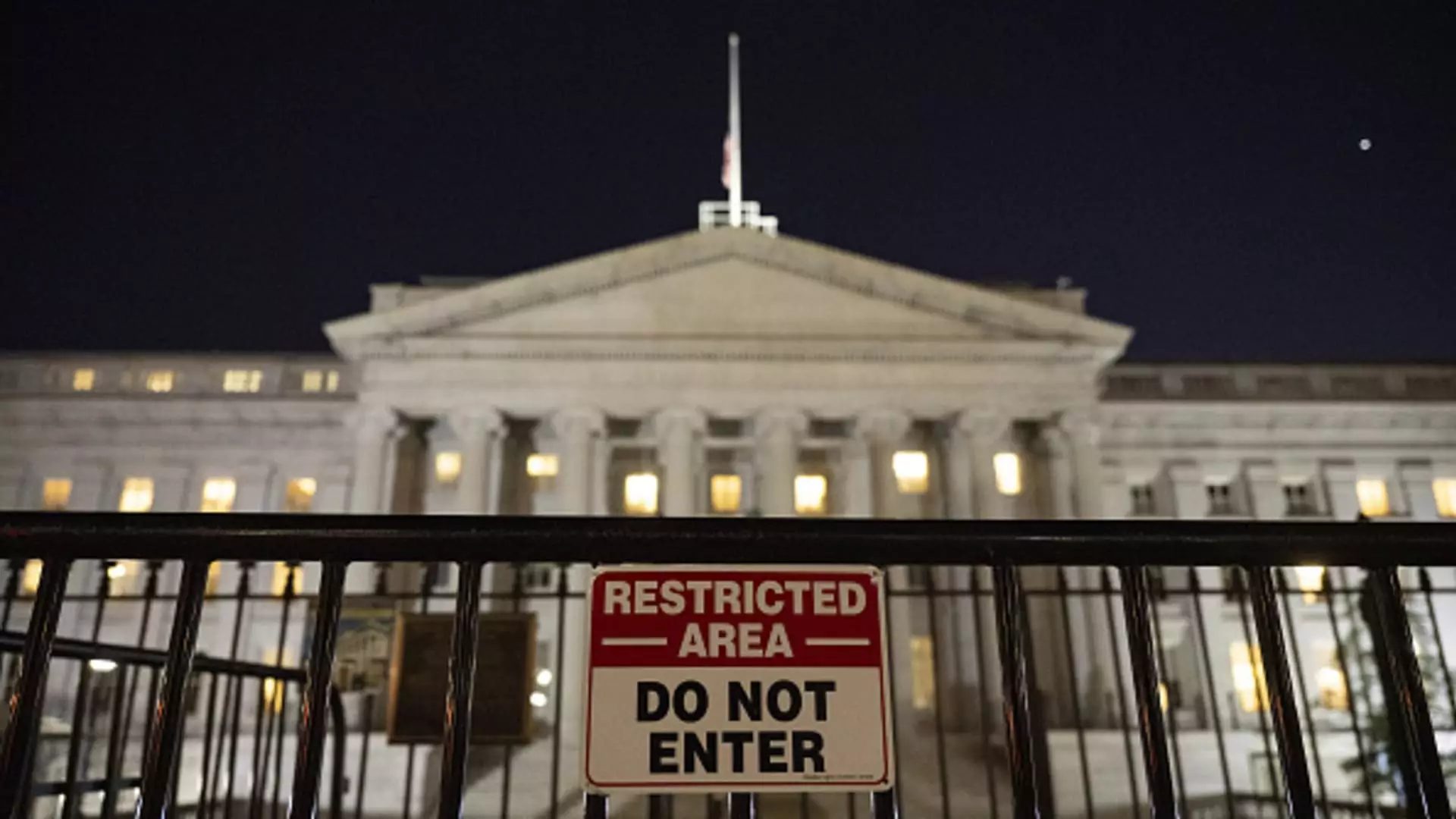Recent reports have unveiled a significant cybersecurity breach involving the Chinese government and the U.S. Treasury Department, specifically targeting agencies responsible for implementing economic sanctions. This incident points to an increasingly complex battle in the cyber realm, wherein state-sponsored actors engage in activities that could jeopardize national security and international relations. The implications of such breaches extend far beyond the immediate damage to data integrity; they raise critical questions about the future of cybersecurity and the geopolitical landscape.
The Vulnerability of Key Institutions
The cyberattack on the Office of Foreign Assets Control (OFAC) and the Office of Financial Research represents a direct assault on the U.S. government’s ability to manage its economic sanctions. Unlike traditional military threats, cyberattacks can bypass physical defenses, making institutions like the Treasury particularly vulnerable. This breach not only compromises sensitive information but also threatens the efficacy of U.S. sanctions, which serve as a cornerstone of American foreign policy, especially regarding its stance on China. When a hostile entity successfully infiltrates systems designed to monitor financial activities, the ramifications could be profound, potentially altering how sanctions are enforced and perceived globally.
In the wake of such allegations, the Chinese government swiftly rejected claims of involvement, labeling them as “irrational” and unfounded. This reaction illustrates a broader pattern in international relations, where accusations can quickly escalate tensions. The immediate dismissal by the Chinese Embassy in Washington serves as a reminder of the difficulty in establishing accountability in cyberspace. Unlike physical confrontations, cyberattacks often lack a clear attribution, complicating diplomatic dialogues and responses.
According to the Washington Post, cyber operatives from China are believed to have focused on entities within the U.S. that may face sanctions. This highlights a growing trend where nations leverage cyber capabilities to gather intelligence on economic strategies of their adversaries. The stakes are particularly high for the U.S., which views China as its foremost strategic competitor. The potential for armed conflict looms large as each country seeks to gain an upper hand through information warfare, resource acquisition, and economic manipulation.
As highlighted by Treasury Secretary Janet Yellen’s statements on possible sanctions against Chinese banks, the cyber breach underscores a precarious balance of power in international relations. As cyber incidents become more frequent, the U.S. may feel pressured to take a harder stance against perceived threats from China, possibly escalating into more severe economic measures or cyber retaliation. The ongoing tug-of-war not only disrupts bilateral cooperation but also intensifies the urgency for strengthened cybersecurity measures and international dialogue around rogue state activities.
The recent breach of the U.S. Treasury signifies a critical juncture in cybersecurity and international policy. As nations pivot towards aggressive cyber strategies, the repercussions will be felt globally, impacting economies, national security, and diplomatic relations. Addressing such threats becomes increasingly crucial as the line between economic and cyber warfare continues to blur. Ultimately, the future of global security may depend on how effectively nations collaborate to combat these cyber threats while managing their geopolitical aspirations.



Leave a Reply